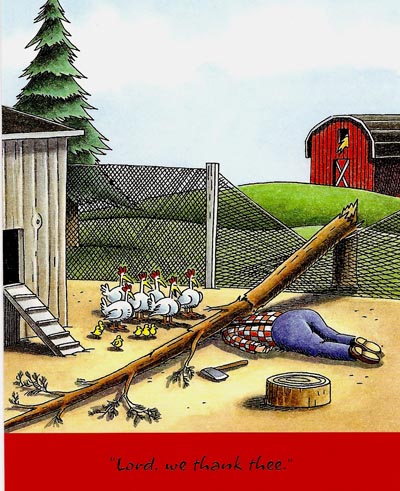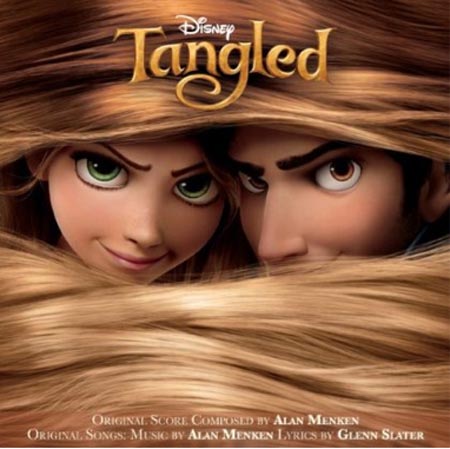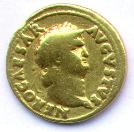I’ve always been a huge fan of Gary Larson’s Far Side cartoons, and his Thanksgiving ones are some of his best. But there are others who have now stepped into his shoes since he isn’t entertaining us any more. For example,
All kidding aside, I thought we might consider for a moment what the Pilgrims and the Puritans actually did eat (and I am trusting you know that the turkey was misnamed by the Brits). Dr. C. Matthew McMahon on the website a Puritan’s Mind has given us some useful basic information about the original Thanksgiving celebrations in the 17th century by the Pilgrims.
“Most of what we know about the Pilgrim Thanksgiving of 1621 comes from original accounts of the young colony’s leaders, Governor William Bradford and Master Edward Winslow, in their own hand. “They begane now to gather in ye small harvest they had, and to fitte up their houses and dwellings against winter, being well recovered in health & strenght, and had all things in good plenty; for some were thus imployed in affairs abroad, others were excersised in fishing, aboute codd, & bass, & other fish, of which yey tooke good store, of which every family had their portion. All ye somer ther was no wante. And now begane to come in store of foule, as winter aproached, of which this place did abound when they came first (but afterward decreased by degree). And besids water foule, ther was great store of wild Turkies, of which they took many, besids venison, &c. Besids they had aboute a peck a meale a weeke to a person, or now since harvest, Indean corne to yt proportion. Which made many afterwards write so largly of their plenty hear to their freinds in England, which were not fained, but true reports.” W.B. (William Bradford)
“Our Corne did proue well, & God be praysed, we had a good increase of Indian Corne, and our Barly indifferent good, but our Pease not worth the gathering, for we feared they were too late sowne, they came vp very well, and blossomed, but the Sunne parched them in the blossome; our harvest being gotten in, our Governour sent foure men on fowling, that so we might after a more speciall manner reioyce together, after we had gathered the fruit of our labors; they foure in one day killed as much fowle, as with a little helpe beside, served the Company almost a weeke, at which time amongst other Recreations, we exercised our Armes, many of the Indians coming amongst vs, and among the rest their greatest King Massasoyt, with some nintie men, whom for three dayes we entertained and feasted, and they went out and killed fiue Deere, which they brought to the Plantation and bestowed upon our Governour, and upon the Captaine, and others. And although it be not alwayes so plentifull, as it was at this time with vs, yet by the goodneses of God, we are so farre from want, that we often wish you partakers of our plenty.” E.W. (Edward Winslow) Plymouth, in New England, this 11th of December, 1621.
“The feast included foods suitable for a head table of honored guests, such as the chief men of the colony and Native leaders Massasoit (“Great Leader” also known as Ousamequin “Yellow Feather”), the sachem (chief) of Pokanoket (Pokanoket is the area at the head of Narragansett Bay). Venison, wild fowl, turkeys and Indian corn were the staples of the meal, which likely also included other food items known to have been aboard the Mayflower or available in Plymouth, such as spices, Dutch cheese, wild grapes, lobster, cod, native melons, pumpkin (pompion) and rabbit.
“By the mid-17th century, the custom of autumnal Thanksgivings was established throughout New England. Observance of Thanksgiving Festivals began to spread southward during the American Revolution, as the newly established Congress officially recognized the need to celebrate this holy day.
“The first Thanksgiving Proclamation was issued by the revolutionary
Continental Congress on November 1, 1777. Authored by Samuel Adams [yes the brewer and also a very devout Christian], it was one sentence of 360 words, which read in part: “Forasmuch as it is the indispensable duty of all men to adore the superintending providence of Almighty God; to acknowledge with gratitude their obligation to him for benefits received…together with penitent confession of their sins, whereby they had forfeited every favor; and their humble and earnest supplications that it may please God through the merits of Jesus Christ, mercifully to forgive and blot them out of remembrance…it is therefore recommended…to set apart Thursday the eighteenth day of December next, for solemn thanksgiving and praise, that with one heart and one voice the good people may express the grateful feeling of their hearts and consecrate themselves to the service of their Divine Benefactor…acknowledging with gratitude their obligations to Him for benefits received….To prosper the means of religion, for the promotion and enlargement of that kingdom which consisteth ‘in righteousness, peace and joy in the Holy Ghost’.”
“It was one-hundred and eighty years after the first day of thanksgiving in America, that our Founding Fathers officially recognized the day by proclamation of the Constitutional government. Soon after adopting the Bill of Rights, a motion in Congress to initiate the proclamation of a national day of thanksgiving was approved.
What is clear from all this is that Thanskgiving was set up as a Christian celebration from the start. It was not in the first place an exercise in gluttony and football (though of course the KJV and Geneva Bible of Isaiah 55.1-2 does mention delighting thyself in fattening foods and drinking wine on the lees). What is equally clear is that the Puritans were no puritans when it came to eating. They could eat you under the table, though their normal diet was much healthier than ours. A major distinction of course was made between normal eating and feasting on holy days. They would view with astonishment the quantities of meat we consume on a regular basis.
And so particularly as we approach Thanksgiving day we should ask the question—- ‘If you are what you eat, are we all turkeys now?’ It’s a question worth asking when in fact the term for eating on this day— ‘to gobble’ comes from the sound that a turkey supposedly makes.
I will just add, Mr. President I hope you will pardon a few more turkeys this year— both some of those in Congress and some of those currently on the turkey farms in good ole N.C.



